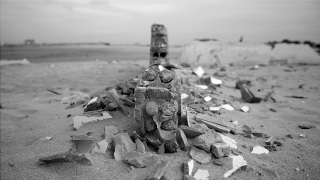Forced eviction, claims UN-Habitat, is a “global phenomenon” and “global crisis.” Figures published by the agency indicate that during the 2000s at least 15 million people globally were forcibly evicted. According to Amnesty International forced evictions are “when people are forced out of their homes and off their land against their will, with little notice or none at all, often with the threat or use of violence.” Today, forced evictions in the name of ‘progress’ are attracting attention as growing numbers of people in the Global South are ejected and dispossessed from their homes, often through intimidation, coercion and the use of violence. At the same time, we have also witnessed the intensification of a “crisis” urbanism in the Global North characterised by new forms of social inequality, heightened housing insecurity and violent displacement. These developments have led to an explosion of forced evictions supported by new economic, political and legal mechanisms.
It is against this background that the Royal Geographical Society-Institute of British Geographers (RGS-IBG) conference (August 27–29 2014) will feature two sessions I have co-organised with Melissa Fernández Arrigoitia and Alex Vasudevan on “Geographies of Forced Eviction: Dispossession, Violence, Insecurity.”
More details about the presentations being given can be found here and here. They include my own paper which will be presented on “Lotus-wielding activism against forced eviction in Cambodia: Gendered dynamics of the Boeung Kak Lake case.” Garnering both national and international attention, Boeung Kak Lake (BKL) is the most high profile case of forced eviction in Cambodia. In February 2007, 133 hectares of the lake and surrounding area were leased for 99 years from the Municipality of Phnom Penh to a Chinese-backed private development company. In contravention of the country’s 2001 Land Law, the company proceeded to forcibly evict thousands of families and in August 2008 began filling the lake sand destroying further homes. Still more remain under threat. Through in-depth (repeat) interviews with men and women from BKL between 2013-2014 I will explore gendered perspectives on, and experiences of, forced eviction and its contestation. My presentation charts how women have become lotus-wielding activists at the forefront of community protest and foregrounds the gendered dynamics that have emerged within private and public spaces of the city. Its analysis departs from a forthcoming paper in Annals of the Association of American Geographers entitled: ‘The Whole World Is Watching’: Intimate Geopolitics of Forced Eviction and Women’s Activism in Cambodia.
In connection to the two RGS-IBG sessions, Melissa and Alex have also organised a related film screening of Rent Rebels at the Goethe Institut, London on August 28th. This new documentary by Gertrud Schulte Westenberg and Matthias Coers is a kaleidoscope of the tenants’ struggles in Berlin against their displacement out of their neighbourhood communities. All welcome! Further info here.
Based on the sessions, we have also organised a jointly edited book (by the same name). It represents the first collection of international academic research on contemporary forced evictions. In bringing together accounts from across urban Europe, Africa, Asia and Latin America, it will breach a significant geographic and conceptual divide that has tended to frame forced evictions either as an overwhelmingly Global South phenomenon, or as an experience more common to the rural, landless poor. The chapters will move away from such geographically restricted and partial understandings of forced evictions to consider the distinct urban logics of precarious housing or involuntary displacements that stretch across cities like London, Accra and Rio de Janeiro to Colombo, Shanghai and Madrid.














